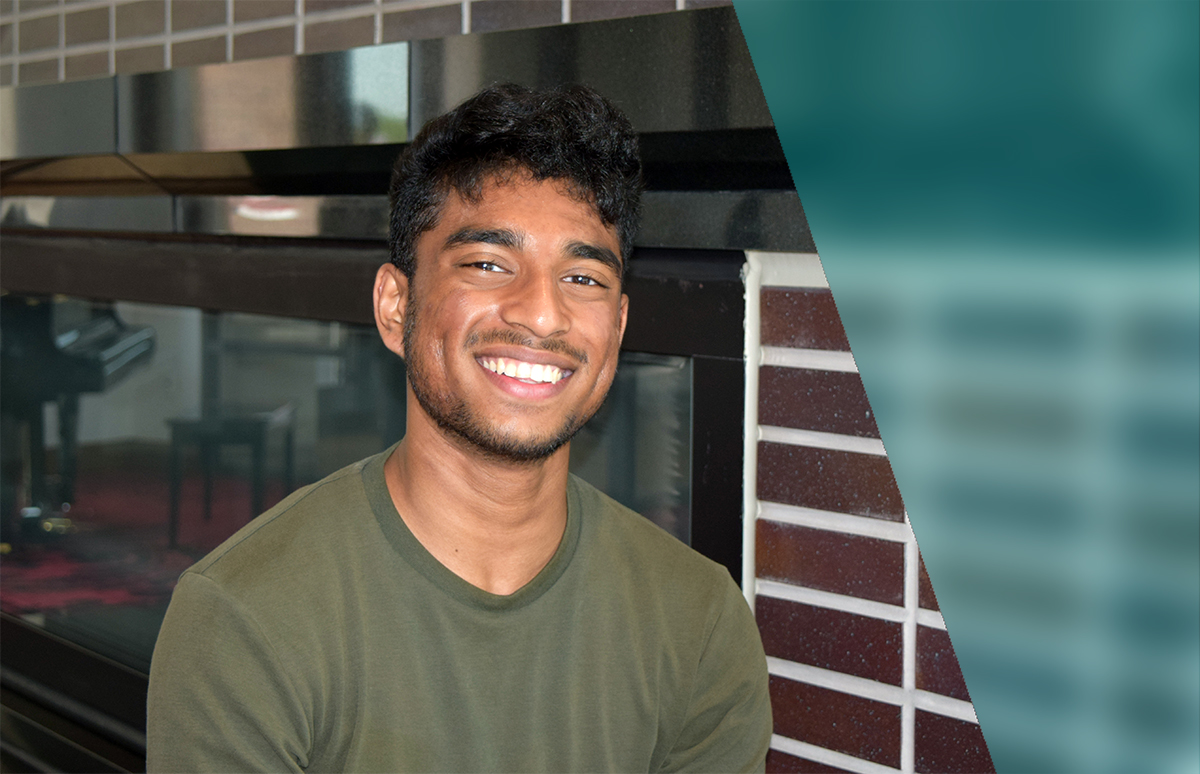Jorden Xavier (’21, SOE/HC), a senior majoring in biomedical engineering and minoring in biology, has served in countless ways during his time at Rutgers, from co-founding in his freshman year E-NABLE, an organization where he could apply his engineering skills around modeling and 3D printing to create affordable prosthetics for children with specific themes, colors, and sports activities in mind; to counseling for the National Crisis Text Line weekly; and serving in multiple Honors College leadership roles.
As one of our most active leaders at the Honors College, Jorden co-founded HC Speaks, an organization dedicated to civil discourse around crucial conversations open to all Rutgers students; led HC alternative service breaks; served as a residential mentor to younger HC students since his sophomore year (virtually this year as an Honors College Changemaking Community Facilitator); and served as a member of the Honors College Alumni Society helping fellow seniors transition into their future status as Honors College alumni.
In fact, Jorden’s service experience stems back to his childhood working in soup kitchens as well as volunteering as a teacher for a Confraternity of Christian Doctrine (CCD) program, which provided religious education to local youths.
One of Jorden’s favorite service experiences was when he attended an alternative break program in the winter of 2020 where he visited Crotched Mountain Rehabilitation Center in New Hampshire, a school and hospital for children with disabilities. He spent time working with children with cerebral palsy and traumatic brain injuries, which he describes as a “very touching experience.” He says, “I made so many great memories with all of the children I worked with and I was able to learn a lot about their daily lives and how so much that they struggle with are things that I take for granted every day.” In fact, he says that his mindset shifted as a result of this experience, as he “learned new ways of looking at the world through these kids because despite their many obstacles they are so optimistic about the world and trying new things.”
Most recently Jorden has been a Crisis Text Line Counselor where he serves on-call answering text messages from people experiencing mental health crises and helping them receive the counsel and support they need. He says,
“The most enlightening aspect has been just how much everyone is going through, especially right now with the pandemic. A lot of people have been really struggling and the crisis text line has provided me this really amazing opportunity to find ways to help people cope with the mental stressors they are facing.”
With so many people losing jobs and even loved ones as a result of the pandemic, “being able to add a little benefit to their lives,” says Jorden, “be it teaching them a new coping mechanism or helping them find tangible solutions to some of the problems they have been facing has been just so rewarding.” Reflecting on all of his service experiences, Jorden says,
“I kind of grew up in a bubble within my community and thought that that was the way the world was, but service work made me realize that reality can be completely different for people depending on where they are coming from and what their backgrounds are.”
Jorden, a member of the international medical fraternity Phi Delta Epsilon, has conducted research at the Orthopedic Surgery Department at RWJUH. His senior thesis, entitled “Biomechanical Evaluation of 4-Strand vs. 5-Strand Hamstring Autografts for ACL Reconstruction” has afforded him the opportunity to work with orthopedic surgeons and help develop new effective methods of patient treatment.
With all of his service and academics, Jorden is headed to Albert Einstein College of Medicine in the fall and ultimately hopes to combine his passions for engineering and medicine to help uninsured and underserved patients. He says, “In my experiences working with patients from uninsured or underserved communities, a lot of times solutions do exist, but they are just out of reach for these communities. One of my biggest goals is to engage in some kind of community service where I’m able to improve upon existing medical device designs and make them more accessible for underserved communities.”
